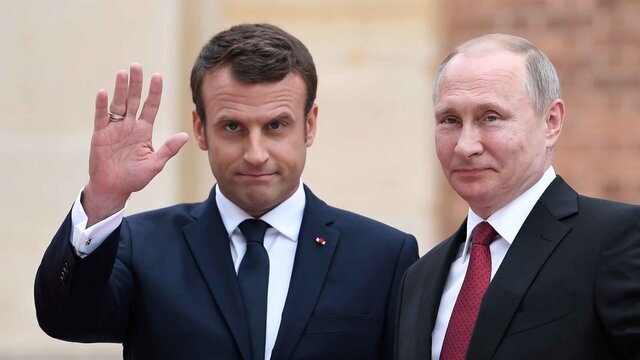Putin, Macron call for preserving nuclear deal

Russian President Vladimir Putin and Emmanuel Macron, the French president, have called for continued efforts to preserve the 2015 nuclear deal, officially known as the Joint Comprehensive Plan of Action.
“In view of the tense situation around Iran, the Presidents of Russia and France noted the need for all the sides to show restraint and called for continued efforts to preserve the Joint Comprehensive Plan of Action,” said a statement issued by the Kremlin after a phone conversation between Putin and Macron.
Also during a joint press conference in Moscow on Saturday, Putin and German Chancellor Angela Merkel said the JCPOA is a matter of “tremendous importance” that should be kept by all means necessary.
U.S. President Donald Trump quit the nuclear deal in May 2018 and introduced the harshest ever sanctions in history on Iran as part of his administration’s “maximum pressure” campaign against Iran.
Under the JCPOA, Iran promised to put limits on its nuclear activities in exchange for the termination of economic and financial sanctions.
Britain, France, Germany, Russia, China, and Iran have been trying to salvage the pact. However, Europeans’ efforts to protect trade with Iran against the U.S. sanctions have yielded nothing concrete so far.
On May 8, exactly one year after the U.S. abandoned the deal, Tehran announced that its “strategic patience” is over and began to partially reduce its commitments to the agreement at bi-monthly intervals.
Iran’s moves are based on paragraph 36 of the JCPOA which “allows one side, under certain circumstances, to stop complying with the deal if the other side is out of compliance.”
In the first stage, Iran announced that it will not limit its stockpile of the nuclear fuel to 300 kilograms allowed under the deal. On that date (May 8) Iran’s Supreme National Security Council (SNSC) said if the remaining parties to the JCPOA, especially Europeans, devise a mechanism to protect Iran from the sanctions’ effect in the two-month deadline it will reverse its decision.
But since European parties missed the deadline, on July 7 Iran announced that it has started enriching uranium to a higher purity than the 3.67%, thereby starting the second step.
Again, as Europe missed the second 60-day deadline, Iran moved to take the third step, removing a ban on nuclear research and development (R&D).
In the fourth step, which started on November 6, Iran began injecting uranium gas into 1,044 centrifuges at the Fordow nuclear site. It was done at the presence of inspectors from the International Atomic Energy Agency (IAEA).
In its fifth and final step on January 5, Iran suspended all limits under the JCPOA.
NA/PA
Leave a Comment